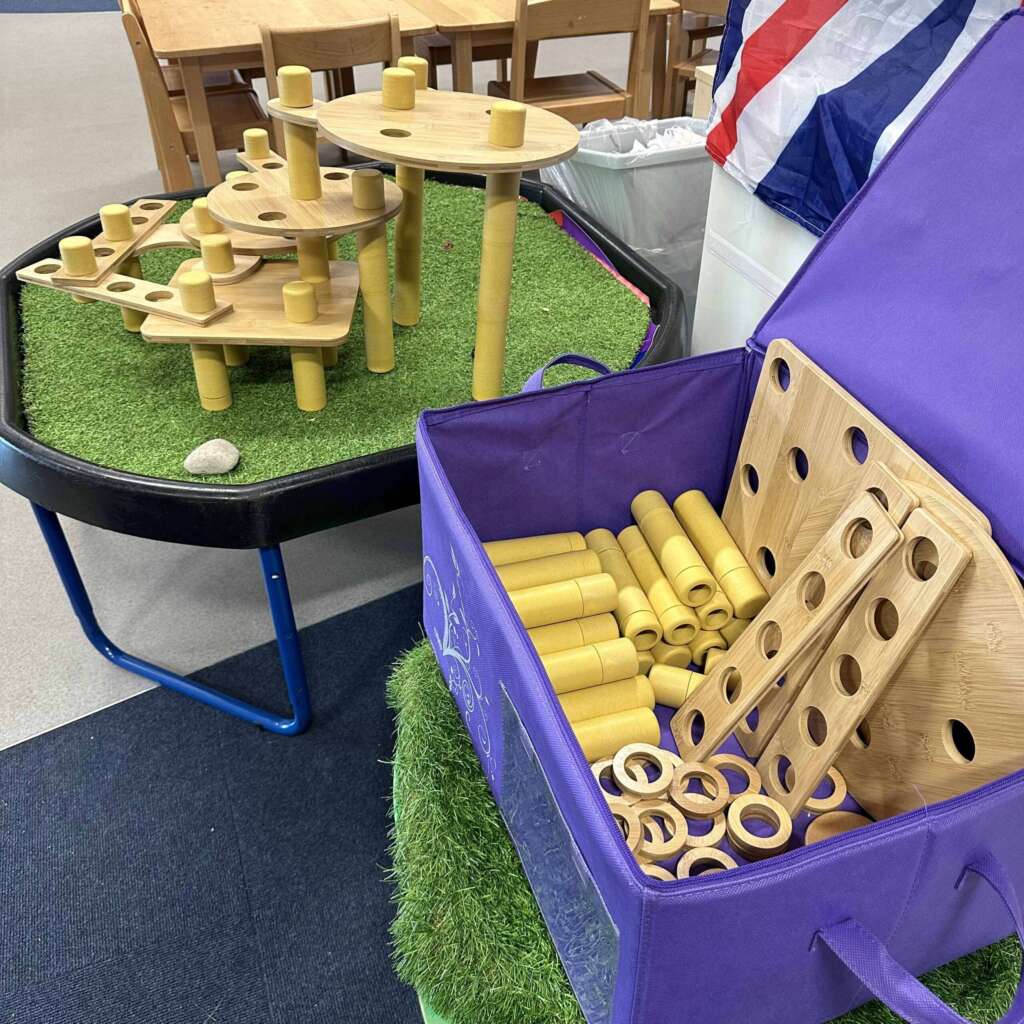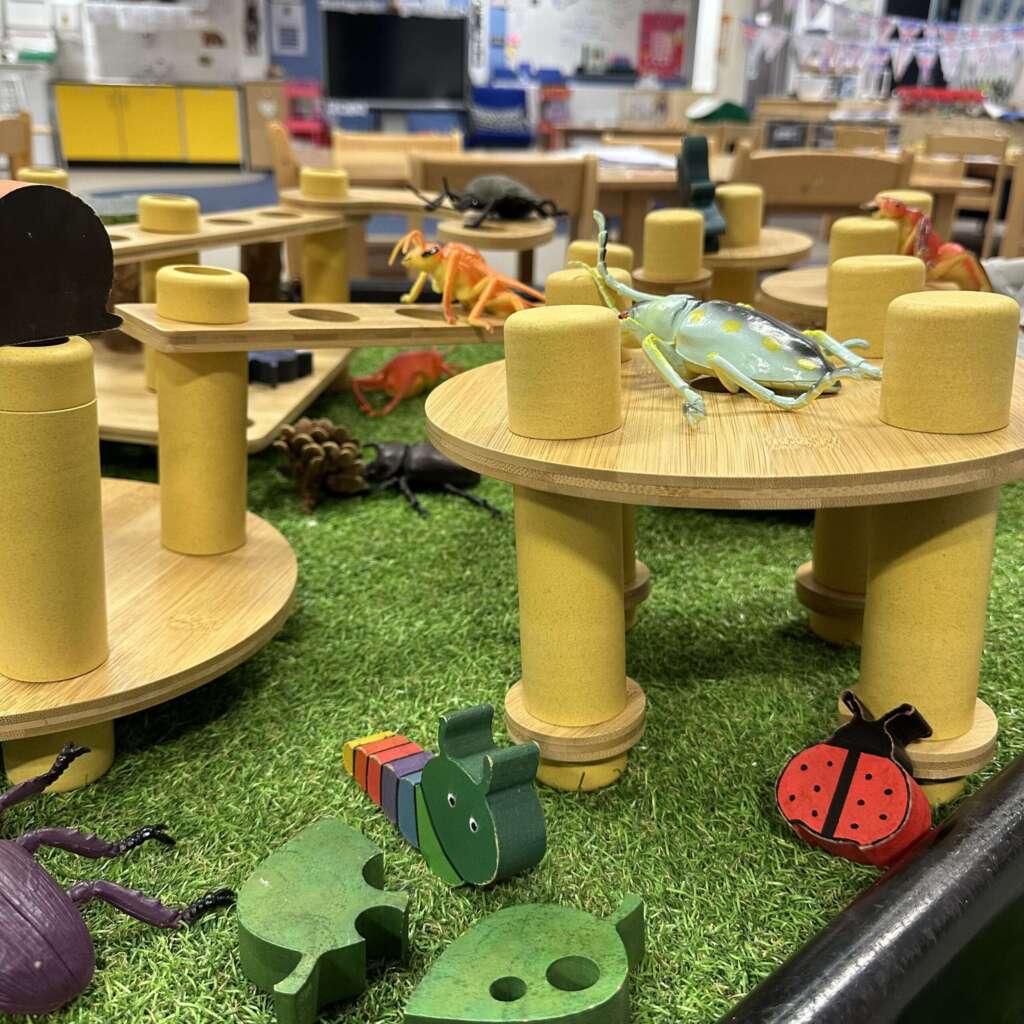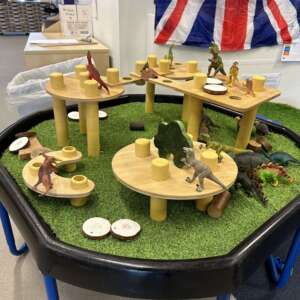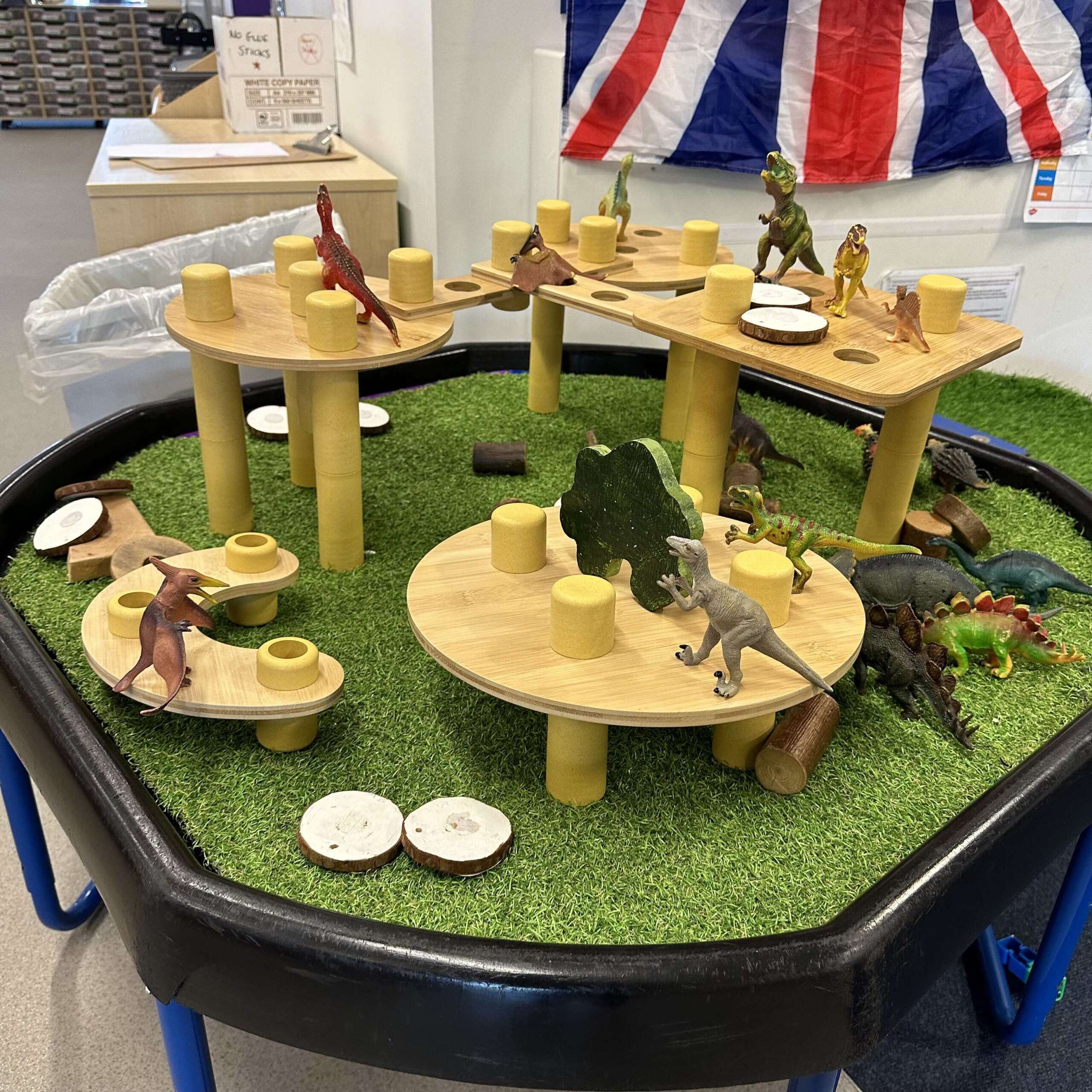Imaginative play is more than just a fun activity for children. Still, it also plays a significant role in their language development.
When children engage in imaginative play, they create scenarios, characters, and stories, which helps them to develop their language skills in several ways. In this blog, I share 5 ways that imaginative play contributes to language development in the Early Years and why this type of play is so integral.


Improves Vocabulary
Firstly, imaginative play allows children to practice and improve their vocabulary. As they create new characters and scenarios, they use new words and phrases that they might not use in everyday conversations. They also learn how to use terms in context, which helps them to understand their meanings better.
Develops Storytelling Skills
Imaginative play helps children to develop their storytelling skills. When children engage in imaginative play, they create stories and narratives they share with others. This allows them to develop their ability to organise their thoughts, sequence events and develop characters.
Enhances Social Skills
When children engage in imaginative play, they learn how to communicate effectively with others, negotiate, and collaborate. They also know how to take turns, share, and express their ideas and feelings.
Improves Cognitive Skills
Children engage in imaginative play using their imagination, creativity, and problem-solving skills. They learn how to think critically, make decisions, and come up with solutions to problems.
Develops Emotional Skills
Finally, imaginative play helps children to develop their emotional skills and explore their own feelings. When children engage in imaginative play, they explore different emotions and learn how to express them. They also learn how to empathise with others and understand their feelings.

In conclusion, imaginative play is crucial to children’s language development. It allows them to practice and improve their vocabulary, storytelling, social, cognitive, and emotional skills. As parents and caregivers, we should encourage and support children’s imaginative play by providing materials and spaces to engage in it. We should also participate in their play and help them to develop their language skills by asking open-ended questions, giving feedback, and modelling appropriate language use.

Thank you to Hayley Winter for writing this blog
Hayley Winter is an Early Years teacher and leader who is passionate about learning through play. She shares simple and effective teaching ideas for 3-5 year olds on social media. Find out more over on her website: //www.allaboutearlyyears.com [allaboutearlyyears.com]




